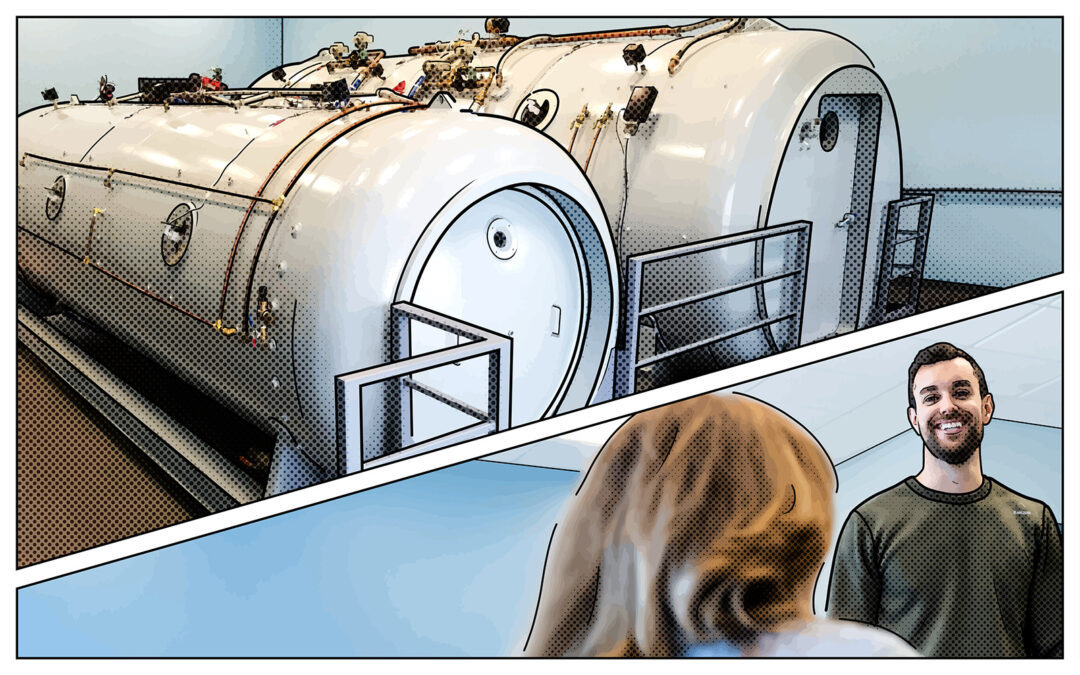Veterans often face unique challenges when transitioning to civilian life, making mental well-being a cornerstone of their health. Achieving mental wellness is not just about coping—it empowers veterans to rebuild connections, pursue passions, and thrive in their post-service lives. Below is a comprehensive guide to key resources and strategies that can help veterans on their path to recovery and resilience.
Hyperbaric Oxygen Therapy (HBOT): A Game-Changer for PTSD and TBI
Hyperbaric Oxygen Therapy (HBOT) is a non-invasive treatment that involves breathing pure oxygen in a pressurized chamber. It has proven effective in addressing the root causes of PTSD and Traumatic Brain Injury (TBI), offering veterans renewed mental clarity and emotional stability.
- Reducing Inflammation: HBOT alleviates brain inflammation, a common effect of PTSD and TBI.
- Enhancing Blood Flow: Improved oxygenation boosts cognitive function and mood regulation.
- Promoting Neural Repair: HBOT aids in regenerating damaged brain tissue, addressing long-term effects of trauma.
Studies have shown that HBOT enhances neuroplasticity, reduces oxidative stress, and increases stem cell activity, cementing its place as a vital therapy for veterans.
For further details, visit the National Institutes of Health (NIH) HBOT Research.
Veterans Wellness Toolkit
Developed by VA educators, the Veterans Wellness Toolkit provides practical strategies for self-care that complement professional treatments.
- Stress Management Techniques: Learn ways to manage emotional resilience through guided activities.
- Daily Routines for Mindfulness: Incorporate exercises that foster relaxation and improve focus.
This toolkit empowers veterans to take proactive steps in managing their mental health and overall well-being.
Stop Soldier Suicide: A Lifeline for Mental Health
Stop Soldier Suicide is a nonprofit organization dedicated to preventing veteran suicides through personalized care plans and holistic support.
- Comprehensive Assistance: Connects veterans to tailored mental health resources.
- Proactive Outreach: Offers free services for crisis management and stress reduction.
- Holistic Approach: Addresses the root causes of mental health struggles, such as financial or relationship challenges.
Explore their services at Stop Soldier Suicide.
VA Mental Health Services
The U.S. Department of Veterans Affairs (VA) provides extensive mental health services tailored to veterans’ needs:
- Therapy and Counseling: Individual and group sessions help veterans navigate PTSD, depression, and anxiety.
- Telehealth Options: Remote consultations make professional care accessible from anywhere.
These services are available through local VA medical centers or online platforms.
Self-Care Practices for Veterans
Veterans can enhance their mental well-being by incorporating self-care practices into their daily lives:
- Regular Exercise: Activities like walking, running, or yoga alleviate symptoms of anxiety and depression.
- Mindfulness and Meditation: Techniques like deep breathing promote relaxation and emotional regulation.
- Healthy Living: A balanced diet and sufficient sleep are foundational to mental clarity and resilience.
Local Support for Durham, North Carolina Veterans
Veterans in Durham, North Carolina, can access community-specific resources:
- Durham VA Health Care System: Offers a full range of diagnostic and therapeutic services for mental health.
- Vet Centers: Community-based centers provide free counseling for veterans and their families.
These localized resources ensure personalized care tailored to individual needs.
Innovative Mental Health Programs
Unconventional therapies continue to show promise in improving veterans’ mental well-being:
- Service Dog Programs: Partnering veterans with trained service dogs has significantly reduced PTSD symptoms.
- Read more: AP News
- New York Post
- Surfing Therapy: Engaging in activities like surfing helps veterans reconnect with themselves and the environment.
Crisis Support for Immediate Needs
For veterans in urgent need of assistance, the Veterans Crisis Line offers 24/7 confidential support.
- Phone: Dial 988, then press 1.
- Text: Send a message to 838255.
- Chat: Visit VeteransCrisisLine.net.
This service ensures that veterans receive immediate, compassionate assistance from trained professionals.
Resources for PTSD Support
The PTSD Foundation of America provides education, outreach, and support groups to help veterans and their families cope with the challenges of PTSD.
HBOT4Heroes: A Mission of Healing
HBOT4Heroes is committed to ensuring access to HBOT for veterans in need. They provide up to 40 free treatments for eligible veterans, supported by generous donations. Visit HBOT4Heroes.org to learn more and apply.
Conclusion
Maintaining mental well-being is an essential journey for veterans as they transition from service to civilian life. Whether through innovative therapies like HBOT, professional VA services, or holistic self-care practices, veterans have access to a wealth of resources. By leveraging these tools and seeking support when needed, they can achieve resilience, healing, and a renewed sense of purpose.
Frequently Asked Questions
What is HBOT?
HBOT is a treatment where patients breathe 100% oxygen in a pressurized chamber to promote healing.
How does HBOT help PTSD and TBI?
It reduces brain inflammation, improves blood flow, and repairs damaged neural tissue, addressing the root causes of these conditions.
Can HBOT be combined with other treatments?
Yes, HBOT complements traditional therapies for enhanced outcomes.
How can veterans access HBOT?
Organizations like HBOT4Heroes offer free treatments for eligible veterans.
What other resources are available for veterans with PTSD?
Veterans can explore the Veterans Crisis Line, VA services, and the PTSD Foundation of America for comprehensive support.

